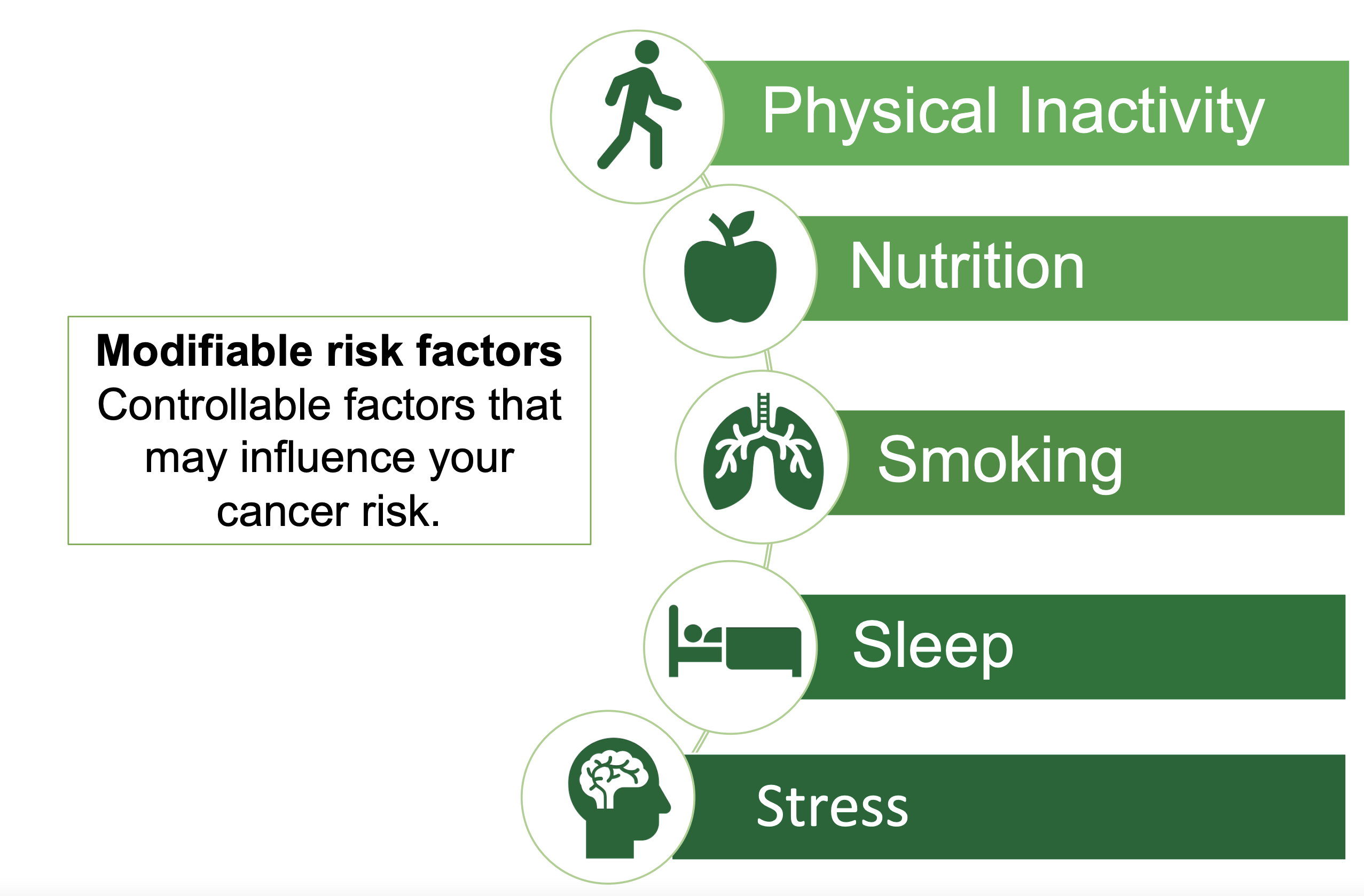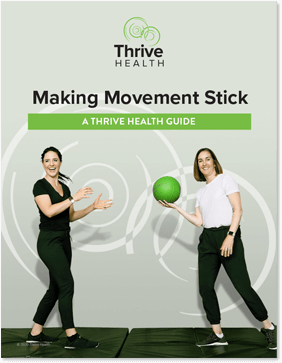Thrive Health provides evidence-based exercise resources for cancer survivors & expert training for fitness and health professionals.
For Survivors: Understanding Risk Factors for Cancer
Written by Thrive Team

Cancer is a complex disease and its development and progression is associated with many environmental, genetic, and lifestyle-related risk factors1-2. In Chapter 2 of the Thriver Manual, you will learn about cancer and associated risk factors, and what you can do to take back control of your health.
Why are risk factors important to understand?
Risk factors can influence the risk of a cancer diagnosis, response to treatment, risk of cancer recurrence and/or disease progression. A number of factors can influence the risk of a cancer diagnosis. Further, there are a number of modifiable factors that can improve your wellbeing after a cancer diagnosis.
Here is a sneak peek at what you will learn about modifiable risk factors and their link to cancer prevention, treatment and control.

Physical inactivity is one modifiable risk factor that can increase the risk of a cancer diagnosis and cancer progression. Research shows that physical activity can lower the risk of a cancer diagnosis and decrease both mortality and cancer recurrence. It can also improve treatment outcomes and physical functioning and decrease psychosocial distress among cancer survivors3-4. Physical activity is a powerful tool that can impact how you manage your cancer!
To learn more about healthy lifestyle behaviours and how you can regain control of your health and reduce your cancer risk, cancer progression, and cancer recurrence, see pages 13 to 21 of the Thriver Manual, which can be downloaded for FREE, here: https://thrivehealthservices.com/survivors/free-thriver-manual/
Stay in Touch!
Follow us @abletothrive on Instagram and Twitter for updates, content, and more. If you want to see a specific topic covered by us, reach us at info@thrivehealthservices.com, or leave a comment on our social media.
Copyright
This manual and its content is copyright of Thrive Health Services Inc – © Thrive Health Services
Inc. 2020. All rights reserved. Any distribution or reproduction of part or all of the contents in any
form is prohibited other than the following:
- You may print or download to a local hard disk extracts for your personal and non-commercial use only.
- You may copy the content to individual third party for their personal use, but only if you acknowledge the manual is a source of the material.
You may not, except with our express written permission, distribute or commercially exploit the content. Nor may you transmit it or store it in any other website or other form of electronic retrieval system.
References
- Canadian Cancer Statistics Advisory Committee (2019). Canadian Cancer Statistics. Toronto, ON: Canadian Cancer Society. Available at: cancer.ca/Canadian-Cancer-Statistics-2019-EN (Accessed March 15th, 2020).
- Brenner, D., Weir, H., Demers, A., Ellison, L., Louzado, C., Shaw, A., Turner, D., Woods, R., Smith, L. (2020). Projected estimates of cancer in Canada in 2020. CMAJ : Canadian Medical Association Journal, 192(9), E199-E205. https://doi.org/10.1503/cmaj.191292
- Patel, A. V., Friedenreich, C. M., Moore, S. C., Hayes, S. C., Silver, J. K., Campbell, K. L., Winters-Stone, K., Gerber, L. H., George, S. M., Fulton, J. E., Denlinger, C., Morris, G. S., Hue, T., Schmitz, K. H., & Matthews, C. E. (2019). American College of Sports Medicine Roundtable Report on Physical Activity, Sedentary Behavior, and Cancer Prevention and Control. Medicine and science in sports and exercise, 51(11), 2391–2402. https://doi-org.ezproxy.lib.ucalgary.ca/10.1249/MSS.0000000000002117
- Campbell, K. L., Winters-Stone, K. M., Wiskemann, J., May, A. M., Schwartz, A. L., Courneya, K. S., Zucker, D. S., Matthews, C. E., Ligibel, J. A., Gerber, L. H., Morris, G. S., Patel, A. V., Hue, T. F., Perna, F. M., & Schmitz, K. H. (2019). Exercise Guidelines for Cancer Survivors: Consensus Statement from International Multidisciplinary Roundtable. Medicine and science in sports and exercise, 51(11), 2375–2390. https://doi-org.ezproxy.lib.ucalgary.ca/10.1249/MSS.0000000000002116

Get the facts
Sign up for free, evidence-based exercise oncology insights sent to your inbox once a month, and get instant access to our free guide, Making Movement Stick!
